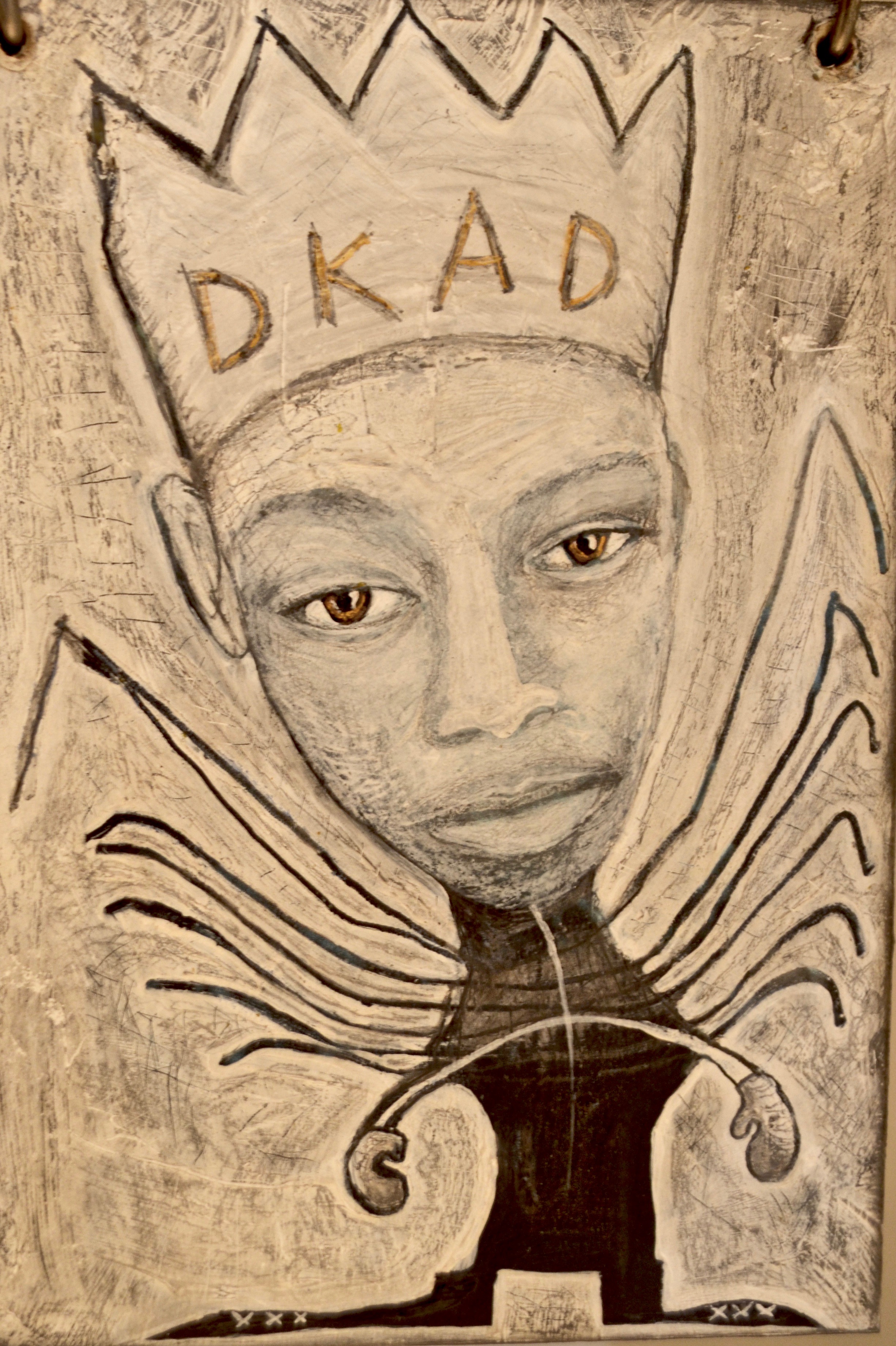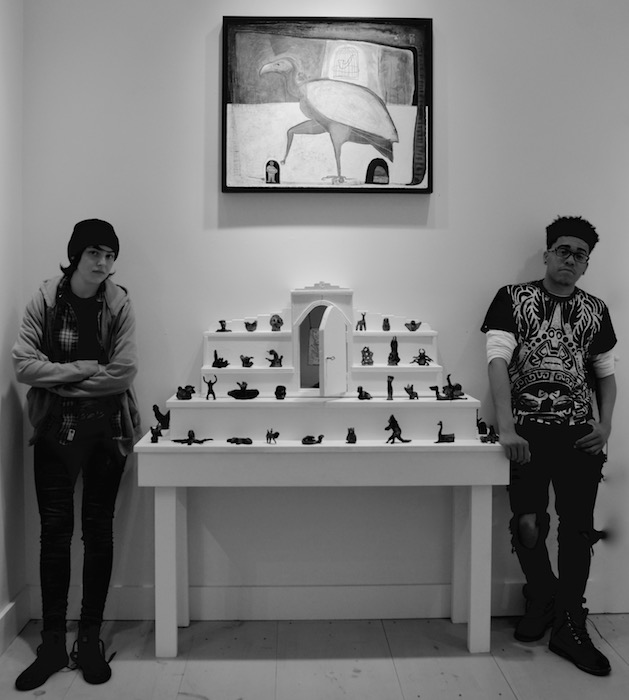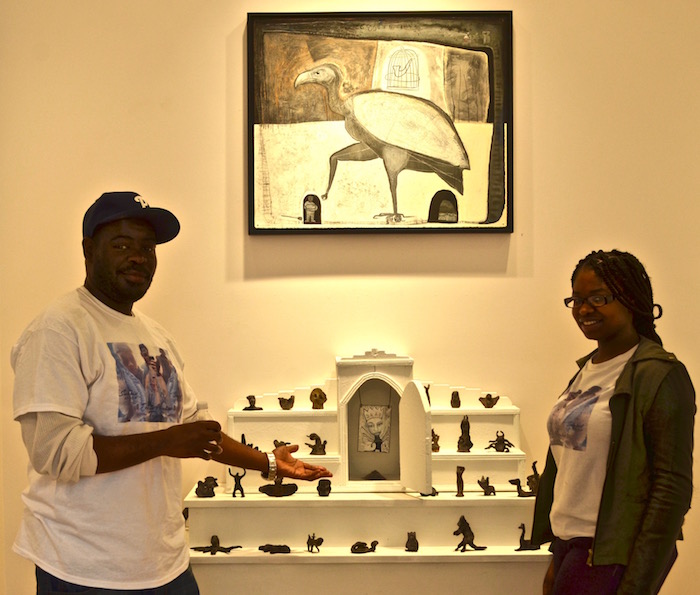On June 7th, Rachel Bliss’ independent exhibition space, The Drawing Room will celebrate its grand opening with a showing from artist Gabriel Romeu. Monoprints from the collections “Apologues” and “Invasive Species” will be on display, the first time any of Romeu’s works will be shown to the public.
Romeu states that no more than a small handful of people have seen these works in person, and those that have seem to interpret them quite apocalyptically. The “Apologues” monoprint series feature nude hairless figures drifting through desolate urban landscapes, withered physiques besieged by, sometimes tethered to talon-brandishing birds that fly above the stark topography. Human figures fall from building tops, wade through ebon pools or soberly stand with vacuous eyes cast upward, sometimes from behind black bars staring past the viewer into an unseen void beyond.
The mind swirls with explanations for the somber tone of “Apologues,” to bring meaning to the perceived woe and anguish. Perhaps the images make a statement upon economic antagonism and the waging of class warfare. Perhaps they envision a counter reality wherein the human subjects populate a monolithic plantation operated by avian overseers, a declaration on the state of factory farming. Perhaps they function as simple documentation of the urban decay seen in rural communities, the deindustrialization of metropolises and their transformations to ghost towns.
While the dizzying interpretations mount in the viewers’ brain, Romeu himself claims to have no answers, considering himself no better an interpreter or expert on his work than anyone else.
“I think the notion of art being self expression, it’s a little self indulgent. I’m interested in investigation,” Romeu says matter of factly.
Romeu went on to say that not only did he avoid establishing narrative and protagonist, but actively tried to eliminate both, being more intrigued by audience interpretation than a singular statement.
“I love when people develop stories,” Romeu says gleefully.
Romeu was born in the Netherlands to a Dutch mother and WWII era 82nd Airborne infantrymen Puerto Rican father. As a child he lived all across Europe, in Germany, Turkey and France before ending up in the Western suburbs of Philadelphia. Romeu now lives unassumingly in Chesterfield, New Jersey caring for several rescue animals, among them his horse, Chomsky.
When I asked him what prompted the decision to have his work on display for the first time, Romeu’s answer was similarly modest.
“Because Rachel offered. I couldn’t give them to a better person.”
Romeu was a fan of Bliss’ work before meeting her while she was the Community Outreach and Educational Coordinator at the Center for Art and Wood in 2012. In 2017, Bliss became what Romeu says was the third or fourth person to see his monoprints.
It may seem somewhat antithetical at first thought to Romeu’s lack of statement within his work to have them displayed in an exhibitive space. Sequencing and sharing works that so intently seek to avoid and eliminate both narrative and protagonist might seem like a clash of concepts, but to hear Romeu tell it, having others interpret his work is what continues to drive him to create.
“I get to see something through someone else’s eyes. I don’t need that control, I had control of trying to eliminate the narrative. The are representative of me, but everything I make invokes questions rather than statements.”
With this lack of pretense in mind, the former narratives conjured by the viewer in Romeu’s work can’t help but begin to crumble and waver, forcing oneself to reexamine their anecdotal deductions. Perhaps Romeu’s human subjects are not falling to the earth, but ascending to the firmament. Perhaps they are not besieged by or tethered to their avian counterparts, but rather are being lead to an elevated echelon, to help populate an idyllic existence. Perhaps the towering edifices are not in decrepitude, but in mid transformation to a yet unknown aspiration.
“It’s your work now,” says Romeu, a mischievously satisfactory look upon his face.
“You’re looking at it, what do you think? What do you see? That’s what I’m interested in.”
It may well be the first and only time Romeu’s “Apologues” will be viewed as a set, before it potentially splinters forever across an audience that will endlessly reinterpret and reevaluate the works in the years to come. And in many ways, this indefinite and impermanent destination could be considered the very apotheosis of Romeu’s nebulous anti-narrative.
The Drawing Room will open its doors at 7 PM on Friday, June 7th, until 11 PM, displaying works from Gabriel Romeu’s series “Apologues” and “Invasive Species.” Visit https://www.thedrawingroom.gallery for more details.
- Elijah Bliss, 2019








